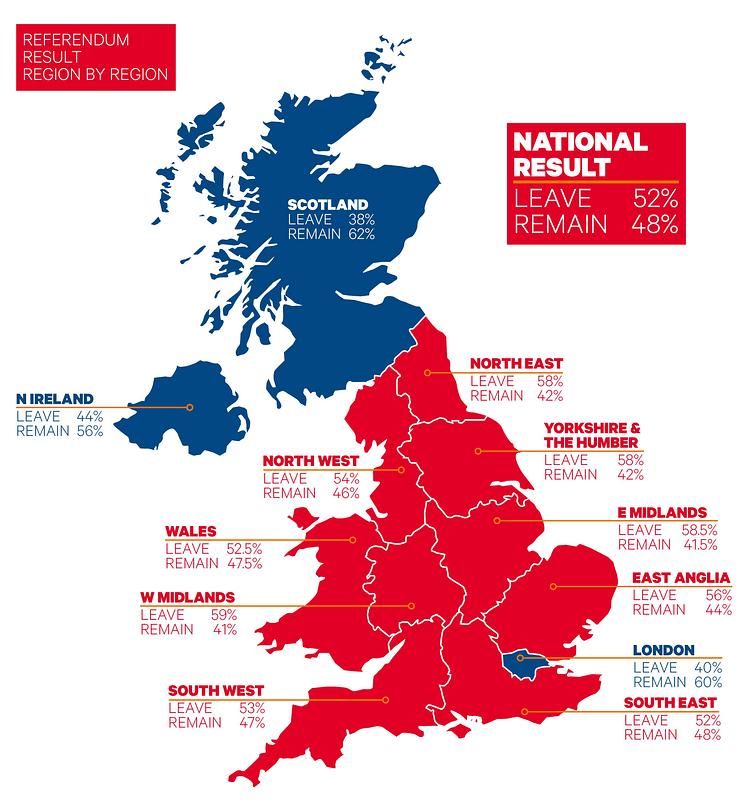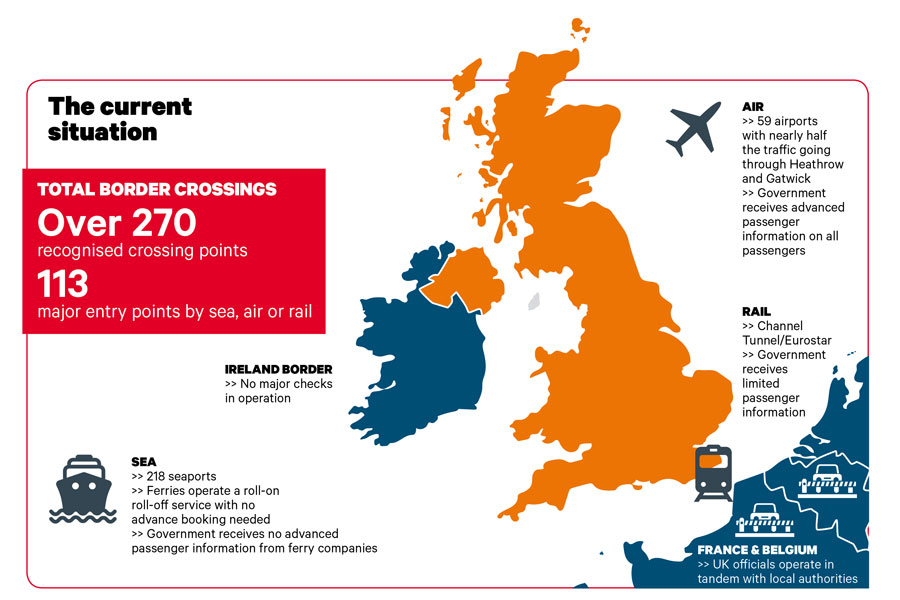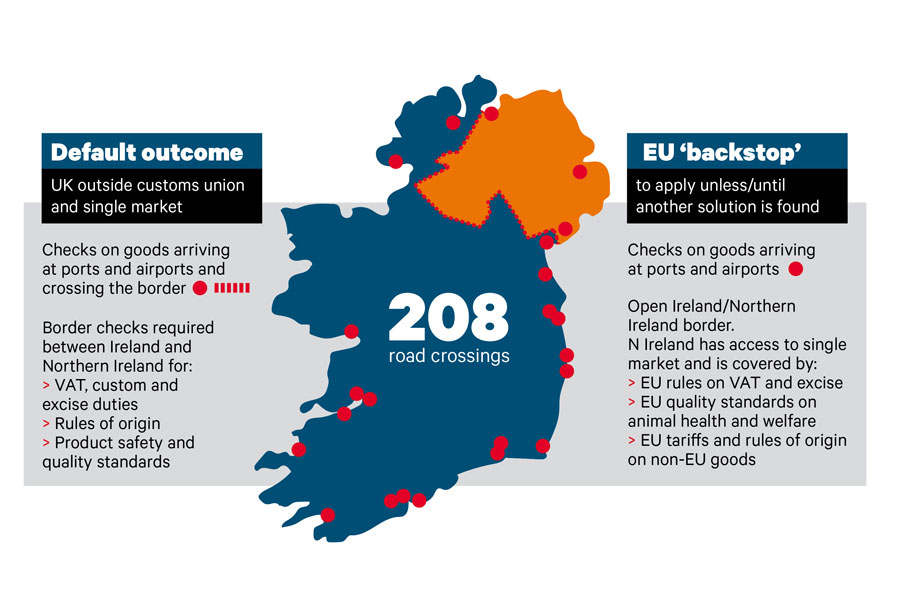In the approach to the ‘No Deal’ Brexit on October 31 barely a day has gone by without dire warnings of supply disruptions, food and drug shortages, renewed Irish border Troubles, a ferocious general election, a potential independent Scotland and the break-up of the UK - and the diminution of UK influence on the world stage.
Assurances about last-minute preparations seem to cut little ice as businesses anxiously appraise emergency supply lines. And more households are opting to stock up on items ranging from tinned foods to loo rolls.
Former Prime Minister Gordon Brown has now called for a full analysis to be made of the consequences of a ‘No Deal’ outcome – and a suspension of the ‘No Deal’ departure date of Hallowe’en.
But strangely, there is a missing forecast here: a set of outcome prognostications that has been glaringly absent: what would life be like if, after all the political hullabaloo and fears of an economic hit, the UK opted to Remain?
Impossible? Anxiety is on the rise. The economy is slowing and now vulnerable to recession.
In Scotland the SNP administration, backed by 35 MPs at Westminster led by vociferous Ross, Skye and Lochaber MP Ian Blackford, remains ferociously opposed to leaving the EU on any terms.
The new Conservative administration has a majority of just one. It is profoundly vulnerable to attack, from both within and without.
Few confidently predict that Boris Johnston would be able to secure a working majority in a late autumn election. A minority Labour administration with conditional support from the SNP could well emerge that could halt Brexit dead in its tracks.
Meanwhile, three major parties - Labour, the SNP and the Liberal Democrats – have insisted that a ‘Remain in the EU’ option is included in any new referendum on our membership.
Voter fatigue over Brexit and its relentless domination of the news headlines since 2016 is already evident and now setting hard.
The view from Brussels
EU reform - or more centralisation?
Advocates of ‘Remain’ now have a duty to set out their programme and priorities for a re-engaged UK and how it would deal with those EU institutions which even many Remain-supporting MPs had cause to question.
Could the UK continue to seek EU reform?
In 2015 former Prime Minister David Cameron set out his “reasonable reforms” in a letter to European Council president Donald Tusk, saying he had every confidence of securing a deal. This lofty and in places ill-defined list included:
- protecting the Single Market for Britain outside the Eurozone block (i.e. no discrimination)
- a UK opt-out from ‘ever closer union’
- tighter controls over immigration and migrant access to benefits
The EU has since been obliged to tighten migrant access in the face of domestic political pressures. But Mr Cameron was unable to return with a convincing account of success in the other three areas.
Since then, the political dynamics have changed. It is not just that the UK Brexit party received the highest share of the vote in nine out of 10 regions in the 2019 Euro elections, securing 29 seats. Eurosceptic parties on the continent also strengthened, with stronger representation from Italy, France and Germany. Together, they now hold some 135 seats.
But there are changes ahead in Brussels, too, which may not bode well for liberal-minded Remainers seeking to pick up the baton of reform. Ursula von der Leyen, the pro-EU integration German defence minister, has been chosen to replace Jean-Claude Juncker as European Commission President.
The voting was close – 422 in favour, 327 opposed, with some EU officials warning that she would face an extremely difficult task governing in partnership with a Parliament that is more diverse and divided than at any other point in the EU's modern history.
She has already said she would be prepared to further extend the UK’s withdrawal date. However, Leave-supporting economist Richard Wellings said her backing, drawn from pro-EU groups, will “benefit” the Brexiteers.
“This is pretty worrying for people that value the sovereignty of EU members states so they are just going to get more and more centralisation in Brussels.
“So an EU superstate with an EU army, a common eurozone, centralised budgets. All these things the Brexit supporters have been warning about for years.”
The economist said the divisions within the EU “are becoming more and more apparent every day”.
The consequences of Remain
Status quo ante?
Little – very little – has been written about the consequences of Remain.
After three and a half years of bitter argument and recrimination, would the Brexit tent fold and the political waters simply close over?
- Would our relationship with the rest of the EU be much changed, if at all?
- Would it simply revert to status quo ante?
- Would we be able to resume Single Market and Customs Union arrangements as if nothing had happened?
- Would the UK have gained, or lost influence in Brussels?
- What would be the implications here at home if voters chose to ‘reverse ferret’ on Brexit?
- Would the SNP campaign for a second independence referendum then lose some justification and support, for little would have changed constitutionally if Remain won?
Surely no less compelling a case could now be made for an analysis of the consequences of staying in as much as for pursuing ‘No Deal’.
Imagine the sun rising the day after we vote to stick with the status quo. The pound would almost certainly bounce upwards and European bonds enjoy a fillip.
After all, we would continue to enjoy tariff-free trade within the EU, which accounts for 44 per cent of all UK exports of goods and services and 53 per cent of our imports; cheaper food and alcohol imports from continental Europe; some 3.1 million jobs linked to EU exports safeguarded; free movement of labour to plug skills gaps: tumult avoided, with relief at a world returning to normal.
But what exactly would normal look like, now?
The economic impact
Clear blue skies?
What is the basis for the belief that resumed membership would necessarily be economically benign?
Growth is trending downward in most EU economies. A change of government in Italy portends serious budgetary friction ahead with Brussels. And geopolitical problems, largely outwith the EU’s control, also darken the economic horizon. The US-China trade tariff war has hit EU exports and pushed the German economy to the brink of recession.
What of the mechanics of Remain? The UK may find itself trying to negotiate admission in an incomparable position to the one in which it secured its current opt-outs from certain EU laws and policies. As an EU member, the UK had a veto on all treaty changes. But would such opt-outs continue to apply?
For example, we might end up having to accept the euro and join the Schengen zone, as well as take on all EU laws without exception
While we opted out of the Euro, it might not be quite as easy to resist on re-admission. The strength of the UK’s case for not joining the euro is the importance of sterling and of currency autonomy to the City of London and to a strong UK economy. A similar challenge could present itself over EU border controls, and our ability to negotiate a continuing opt-out from the Schengen zone.
Thus can the end of Brexit trauma and the clear blue skies of a ‘Remain’ outcome cloud over more quickly than many suppose? And will ‘Europe’ cease to be such a thorn in the flesh of UK politics and economics?
After more than 50 years, with the benefits have also come unease, disputation and complaint over intrusive business regulation, unpopular restrictions, a ‘one size fits all’ mentality, the ever-increasing scope and powers of European law and underlying unease over loss of sovereignty.
All sweetness and light for Remain? That is a high hope. Even a brief glance back reminds us that ‘status quo ante’ was never quite a bed of roses.
You may also be interested in:
Bill Jamieson: Recession likely even before Brexit
Why Boris Johnson won’t last long as Prime Minister – Bill Jamieson
The benefits of the Brexit-induced fall in pound’s value – Bill Jamieson
Whatever Brexit brings, here’s why we’ll be all right in the end – Bill Jamieson



